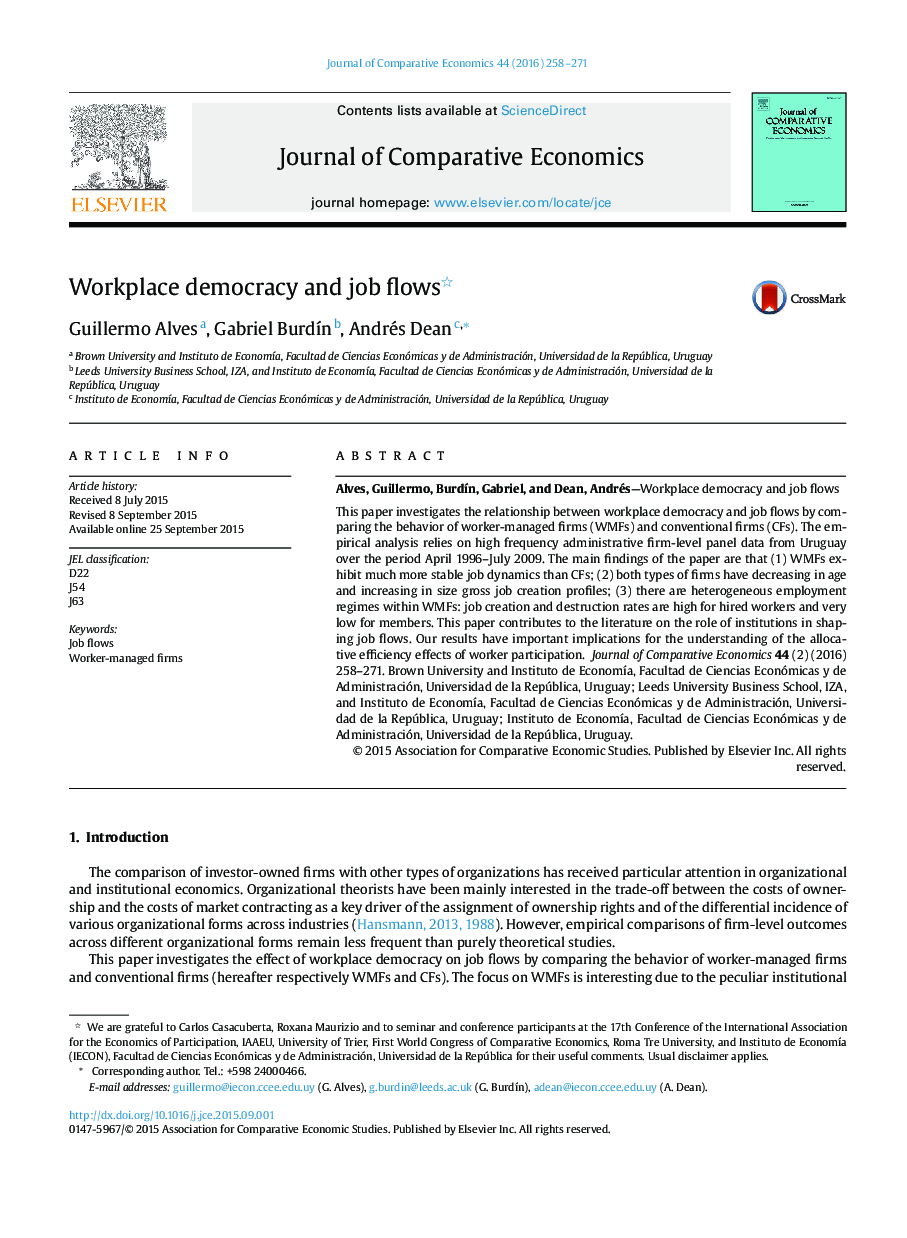| Article ID | Journal | Published Year | Pages | File Type |
|---|---|---|---|---|
| 5092282 | Journal of Comparative Economics | 2016 | 14 Pages |
Abstract
This paper investigates the relationship between workplace democracy and job flows by comparing the behavior of worker-managed firms (WMFs) and conventional firms (CFs). The empirical analysis relies on high frequency administrative firm-level panel data from Uruguay over the period April 1996-July 2009. The main findings of the paper are that (1) WMFs exhibit much more stable job dynamics than CFs; (2) both types of firms have decreasing in age and increasing in size gross job creation profiles; (3) there are heterogeneous employment regimes within WMFs: job creation and destruction rates are high for hired workers and very low for members. This paper contributes to the literature on the role of institutions in shaping job flows. Our results have important implications for the understanding of the allocative efficiency effects of worker participation.
Related Topics
Social Sciences and Humanities
Economics, Econometrics and Finance
Economics and Econometrics
Authors
Guillermo Alves, Gabriel BurdÃn, Andrés Dean,
